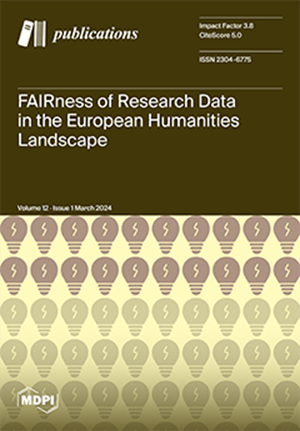An Exploratory Comparative Analysis of Librarians’ Views on AI Support for Learning Experiences, Lifelong Learning, and Digital Literacy in Malaysia and Indonesia
IF 4.6
Q1 INFORMATION SCIENCE & LIBRARY SCIENCE
引用次数: 0
Abstract
Various articles suggest that artificial intelligence (AI) in libraries can enhance the learning experience, promote lifelong learning, and strengthen digital literacy. However, it is unclear if practicing librarians agree with these benefits. Malaysia and Indonesia, neighboring countries with similar library practices, may have differing or similar views on AI support for learning, lifelong learning, and digital literacy. To this effect, this study was conducted with the aim of assessing librarian perspectives on the support provided by AI in enhancing learning experiences, fostering lifelong learning, and advancing digital literacy initiatives. Additionally, it seeks to compare these perspectives between Malaysia and Indonesia. Using a survey research methodology and an online questionnaire as the data collection technique, the results of the analysis showed that librarians assessed the AI support for learning experiences, lifelong learning, and digital literacy favorably. It was also found that there was no significant difference in the assessments of librarians from these two countries. The contribution of this study is that it has provided empirical evidence regarding AI support in libraries, and developed a scale or measurement for assessing AI support for learning experiences, lifelong learning, and digital literacy. This instrument can be used as a guide when it comes to investing in AI technologies for libraries.马来西亚和印度尼西亚图书馆员对人工智能支持学习体验、终身学习和数字扫盲的观点的探索性比较分析
多篇文章指出,图书馆中的人工智能(AI)可以提升学习体验、促进终身学习和加强数字素养。然而,目前还不清楚从业图书馆员是否认同这些好处。马来西亚和印度尼西亚是邻国,有着相似的图书馆实践,但对人工智能支持学习、终身学习和数字素养的看法可能不同,也可能相似。为此,本研究旨在评估图书馆员对人工智能在提升学习体验、促进终身学习和推进数字扫盲计划方面所提供的支持的看法。此外,本研究还试图比较马来西亚和印度尼西亚图书馆员的观点。分析结果显示,图书馆员对人工智能在学习体验、终身学习和数字扫盲方面的支持评价良好。研究还发现,这两个国家的图书馆员对人工智能的评价没有显著差异。本研究的贡献在于,它提供了图书馆人工智能支持方面的实证证据,并开发了一套量表或测量方法,用于评估人工智能对学习体验、终身学习和数字素养的支持。该工具可作为图书馆投资人工智能技术的指南。
本文章由计算机程序翻译,如有差异,请以英文原文为准。
求助全文
约1分钟内获得全文
求助全文
来源期刊

Publications
Social Sciences-Library and Information Sciences
CiteScore
6.50
自引率
1.90%
发文量
40
审稿时长
11 weeks
期刊介绍:
The scope of Publications includes: Theory and practice of scholarly communication Digitisation and innovations in scholarly publishing technologies Metadata, infrastructure, and linking the scholarly record Publishing policies and editorial/peer-review workflows Financial models for scholarly publishing Copyright, licensing and legal issues in publishing Research integrity and publication ethics Issues and best practices in the publication of non-traditional research outputs (e.g., data, software/code, protocols, data management plans, grant proposals, etc.) Issues in the transition to open access and open science Inclusion and participation of traditionally excluded actors Language issues in publication processes and products Traditional and alternative models of peer review Traditional and alternative means of assessment and evaluation of research and its impact, including bibliometrics and scientometrics The place of research libraries, scholarly societies, funders and others in scholarly communication.
 求助内容:
求助内容: 应助结果提醒方式:
应助结果提醒方式:


